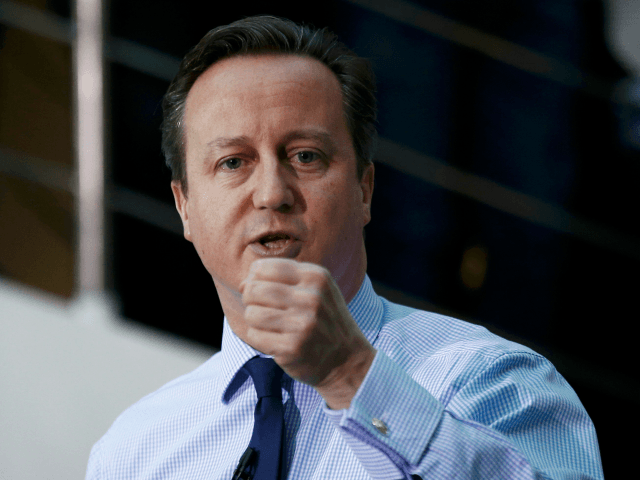The letter to The Times newspaper signed by just 36 FTSE 100 chief executives, has been reported on extensively today, but the more interesting aspect of it — why some refused to add their name — has passed with little comment.
The letter backing the Remain campaign with the warning that to leave the European Union (EU) would threaten jobs and investment in the UK was drafted by a civil servant before the Prime Minister had even concluded his negotiations. It has been reported that considerable pressure to sign the letter was put on people by a concerted behind-the-scenes campaign.
The letter was backed by the likes of the Shell oil group, defence company BAE systems and the chief executives of Heathrow and Gatwick airports. Other predictable names on the list include Britain Stronger in Europe campaigner Karren Brady, and long-standing EU cheerleader Sir Mike Rake.
Noticeable absences from the list include several people who sit as members of David Cameron’s own business advisory group — Nigel Wilson, chief executive of Legal & General; Alison Brittain, the chief executive of Whitbread; Jeff Fairburn, chief executive of British housebuilders Persimmon; and Robert Noel, chief executive of Land Securities.
Although The Independent reports Downing Street to be dismissive of the suggestion far fewer FTSE 100 executives signed up than were hoped for, claiming internal bureaucracy regarding procedures dictating how companies choose to support political campaigns, some of the refuseniks have broken cover to share their reasons for rejecting the letter.
A spokesman for Legal & General said the preemptive letter just came too early for the company to have made up its mind, explaining that the board had planned to discuss the referendum after a deal was tabled by the Prime Minister.
Financial services company Hargreaves Lansdowne refused to sign the letter. Company co-founder Peter Hargreaves is a staunch Thatcherite who last year told the Financial Times: “The europhiles accuse the eurosceptics of a scare campaign but it’s the other way round. This fear that suddenly we will lose millions of jobs and millions of pounds in trade is utter bunkum.”
Conscious of how controversial the referendum is and not wanting to put off their customers, high street retailer Next and leading supermarkets Sainsbury’s, Morrisons and Tesco declined to sign. Tesco said: “The referendum on EU membership is a decision for the people of Britain. Whatever that decision is, our focus will continue to be on serving customers.”
Sainsbury’s described itself as an “apolitical organisation”, also adding that the referendum is a decision for the people. Lloyds Banking Group echoed the sentiment, although its chairman, Lord Blackwell, has previously spoken of the need to reform the EU.
Although the outgoing chief executive of Marks and Spencer, Dutchman Marc Bolland, did sign the letter, the company was at pains to point out he did so in his “personal capacity”, adding that they too “believe it is a decision for the people of Britain to make.”
A similarly neutral stance was adopted by Persimmon, who stated: “We have thousands of employees and customers and no doubt there are strong opinions on both sides. The board has discussed it, and Persimmon has decided to remain firmly neutral.”
Robert Noel of Land Securities is known to be personally pro-EU, but refused to sign the letter saying that since Land Securities only operates in a domestic setting, the letter was too general for their support.
Sky Chief Executive Jeremy Darroch refused to sign the letter citing the need for impartiality because of Sky News.
One senior chief executive was particularly dismissive of the Prime Minister’s campaign, reports The Telegraph, simply declaring his board doesn’t sign “round robins” like this eight-sentence template letter.
Follow Sarkis Zeronian on Twitter: Follow @SarkisZ or e-mail to: szeronian@breitbart.com

COMMENTS
Please let us know if you're having issues with commenting.